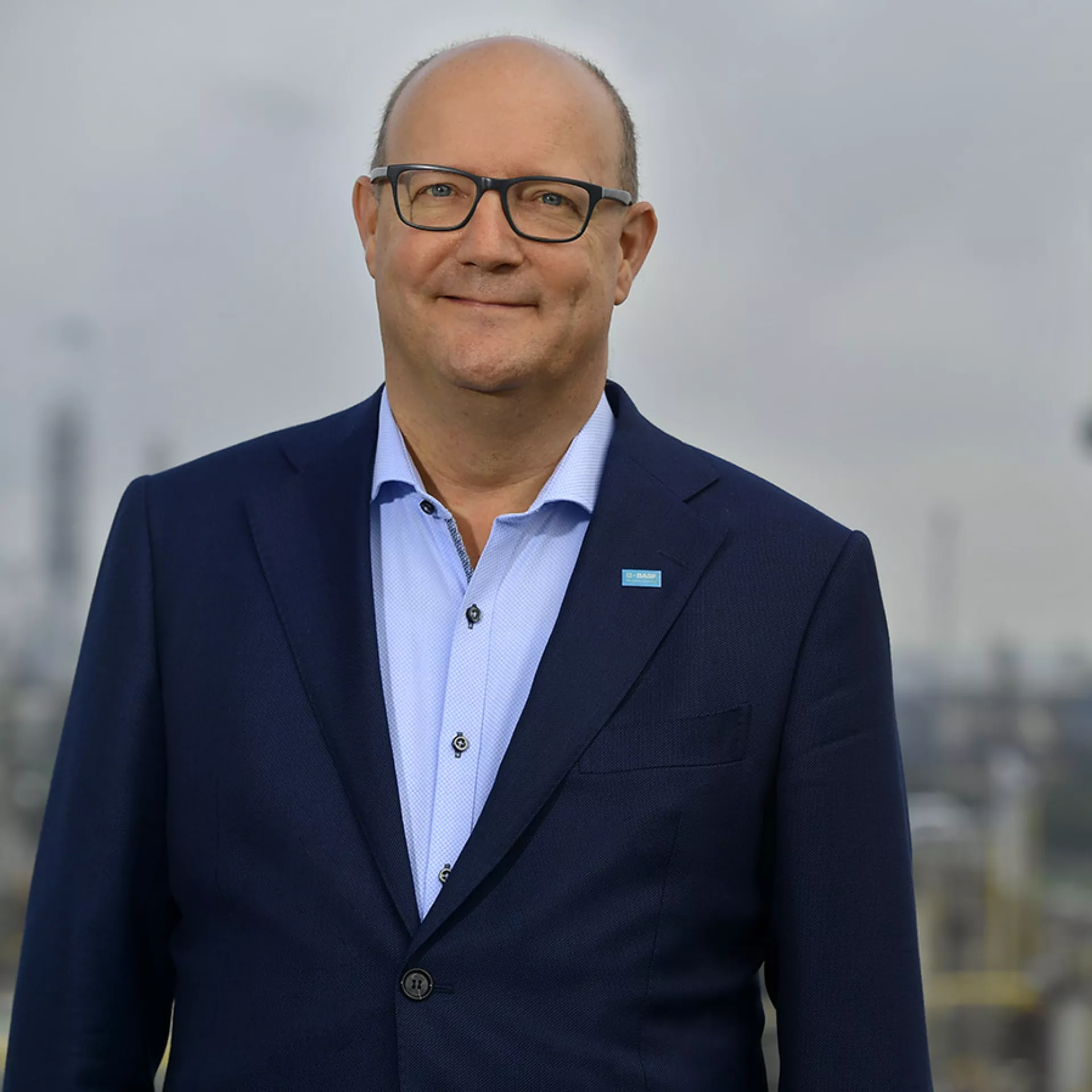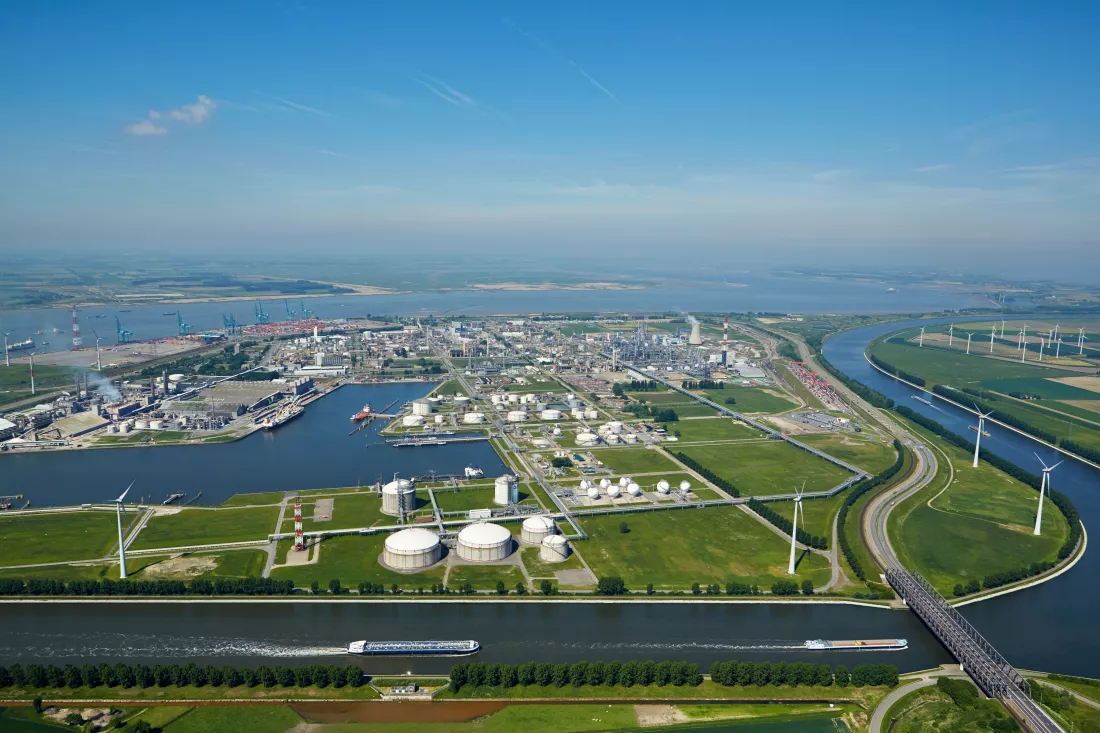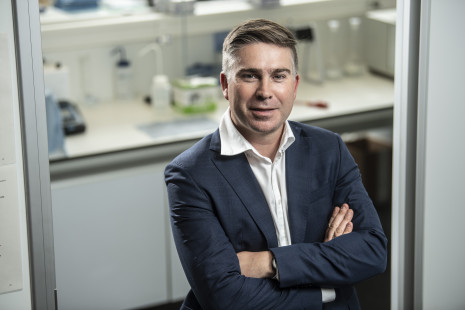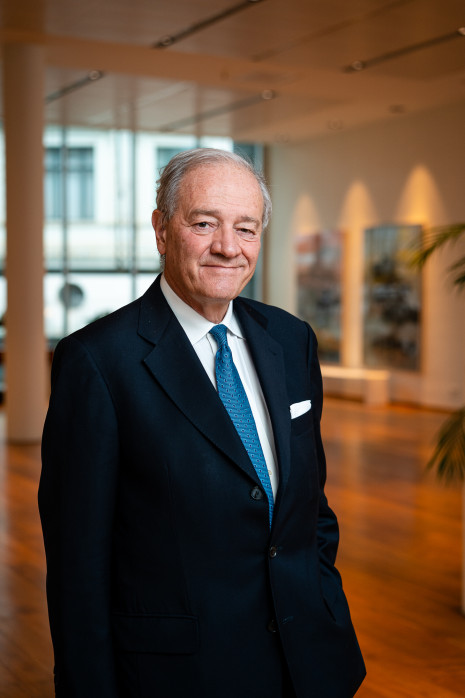Jan Remeysen
CEO BASF
"Our goal is for our Antwerp site to be the first climate-neutral chemical production site. The unique location offers opportunities for using offshore wind energy and large-scale CO2 storage (CCS)

BASF and Port of Antwerp-Bruges: supporting each other for 60 years
BASF’s investments in the Antwerp region are focused on long-term operations and growth. "The BASF Antwerp site covers 600 hectares, which is comparable in size to Antwerp’s historical city centre”, says Jan Remeysen. “We are currently only using 70% of our land, leaving us with ample room to grow. The BASF Group is constantly on the lookout for new opportunities and our Antwerp site is often considered for new investments due to its numerous advantages, including its strategic location in a world port, which also happens to be the second-largest chemical cluster in the world. Of course, we also invest heavily in maintaining and renovating our existing site infrastructure."
BASF is contributing to the energy transition and aims to reduce the ecological footprint of its activities in Antwerp. Jan Remeysen: "Our climate ambition is clear: net-zero CO2 emissions by 2050. Our site will play a significant role in achieving this. BASF aims to become the first climate-neutral chemical production site. To achieve this, we've taken a major step by committing to exclusively using green electricity, including wind energy supplied by the world's largest non-subsidised offshore wind farm, Hollandse Kust Zuid (HKZ), in which BASF has invested."
"In addition, together with Air Liquide, we are building Kairos@C, infrastructure for 'Carbon Capture and Storage' (CCS), which aims to capture 1 million tons of CO2 annually starting in 2027. Kairos@C will be the world's largest carbon capture and storage value chain, significantly contributing to the goal of making BASF Antwerp the first climate-neutral chemical production site."

Climate ambitions entail major new operational and strategic challenges. "Absolutely. For a site like ours, achieving climate neutrality overnight is not feasible”, says Jan. “Major investments in infrastructure are crucial for the industry's transition to carbon neutrality. In addition to CO2 infrastructure, reinforcing the electricity grid is also of great importance. Sustainable chemistry also plays a significant role. To emphasise this, we've supported BlueChem, the sustainable chemistry incubator in Antwerp. Developing new, innovative technologies for carbon-neutral production is crucial in the transition to a climate-neutral chemical production site."
The City of Antwerp and governments will also need to play a significant role for BASF’s future in Antwerp. "Our goal is for our Antwerp site to be the first climate-neutral chemical production site. The unique location offers opportunities for using offshore wind energy and large-scale CO2 storage (CCS). However, governments will also need to contribute to realising this ambition. A clear legal framework for obtaining permits is crucial. Governments will also need to play a significant role in developing the necessary (cross-border) infrastructure, such as pipelines, high-voltage lines, etc., to make the transition to net-zero possible."
Talent is one of the key factors in BASF's success in Antwerp. Jan Remeysen: "Talent from the Antwerp region plays an undeniable role in the success of our site. However, finding technical profiles remains a challenge, and there is room for improvement in aligning education with the industry. Together with the City of Antwerp and various educational partners, we have developed a number of projects to provide solutions. Good technical education depends on well-equipped schools. We have supported the construction of mini-plants and labs at various educational institutions, providing state-of-the-art equipment to prepare young people for careers in the industry."
"Through these partnerships, students complete internships in our company and get a taste of the business world. Very often, such internships lead to successful hiring. We also participate in various advisory boards for these schools and share our insights on how to better align education and the industry."
BASF’s Antwerp location is globally unique for a number of reasons. "The most significant factors that make our Antwerp site stand out are the highly-qualified people, its location in a global port with direct access to road, rail, open sea, and inland waterways, as well as an extensive pipeline infrastructure”, concludes the CEO.


